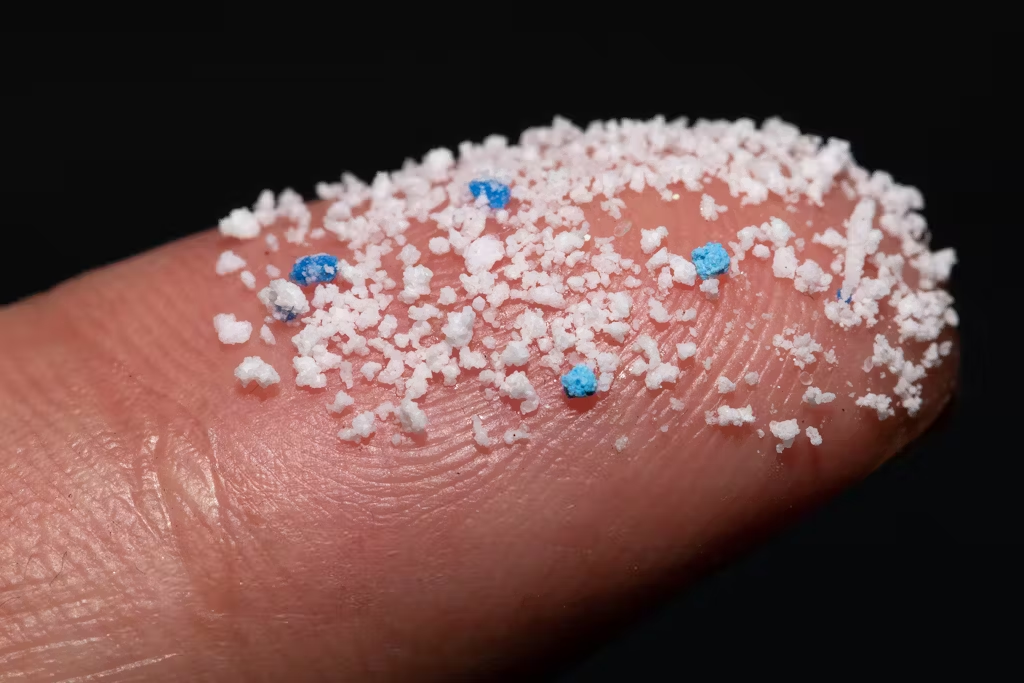_(1).webp)
 Manjit thakur
Manjit thakur
Some time ago, the European Union imposed a ban on single-use plastic products. This ban also applies to plastic plates, cutlery, food boxes, and cotton buds.
The ban on plastic is understandable, but why cotton buds? After all, how can this small stick used for cleaning ears and the tiny bit of cotton stuck on it pollute the ocean?
Not to be forgotten is the Indian’s habit of urinating on the roadside. How can 50 ml of human wastewater spread disease or increase pollution?
The European Commission has estimated that a ban on the use of single-use plastic will prevent the emission of at least 3.4 tonnes of carbon dioxide. These single-use plastics include polythene bags, plastic bottles, cups, food packets, sachets, wrappers, straws, plates, cups, and glasses made of thermocol.
India has decided to be free of single-use plastic by 2022, but no decision has been taken so far on any plan to impose a complete ban as people's attitudes do not seem to change. Even three years after this deadline, no improvement has been seen anywhere.
If you don't believe it, stand near your vegetable vendor for a while and see. And forget about the poor vegetable vendor look into the dustbin near you.
According to the World Wildlife Fund (WWF), plastics are not biodegradable and take many years to decompose. Even if they decompose naturally in contact with temperature and air, they turn into microplastics instead of becoming part of the soil.
According to WWF, this microplastic contaminates our soil and water. Its toxic constituent chemicals enter living cells and through them enter the food chain.

Microplastic
It also affects wildlife. According to WWF's estimate, a person is eating about five grams of plastic every week. Every year 10 lakh sea birds are killed due to plastic and 700 species are affected due to plastic waste present in the digestive system.
According to the UN-Plastic Collective report, about 8.3 billion tonnes of plastic has been produced since the 1950s and about 60 percent of it is either deposited in landfill sites like Ghazipur or Bhalswa located in every part of the country (and the world) or is lying in open spaces.
In India alone, 90.46 lakh tons of plastic waste is produced every year, out of which 43 percent is single-use plastic. This problem is more serious in India because 40 percent of the plastic waste in the country is not collected.
There are complexities of health-related issues, which need to be understood in detail as to why the use of plastic should be stopped, but in big cities like Patna, Delhi, and Mumbai - where there is a problem of stagnation of rainwater - this plastic is a big reason for it. This plastic waste gets accumulated in the drains and then clogs the drains and sewers.
As far as cotton buds are concerned, the European Union banned cotton buds made of plastic from July 3, 2021. This ban was part of a broader policy called the 'Single Use Plastic Directive', which aimed to reduce plastic pollution in the oceans and coastal areas.
The move was not made in a jiffy. The European Commission proposed a ban on cotton buds, straws, plates, cutlery, and other single-use plastic products in May 2018. Approval took a year and in March 2019, the European Parliament approved the proposal, and nearly two years later, the law came into force on July 3, 2021.
Cotton buds have become a major cause of plastic pollution in the oceans. These small plastic products easily break down in the oceans and turn into microplastics, which can be ingested by marine organisms, causing pollution in the food chain. According to the European Environment Agency, cotton buds contribute to about 4 percent of the plastic waste found on European beaches.
ALSO READ: At 89, Rickshaw puller Ahmed Ali is not done with building schools
So don't underestimate the cotton buds used to clean ears. Though they look like 'cotton', they cause serious injuries!
(The author is Social Media Editor at Awaz-The Voice)
